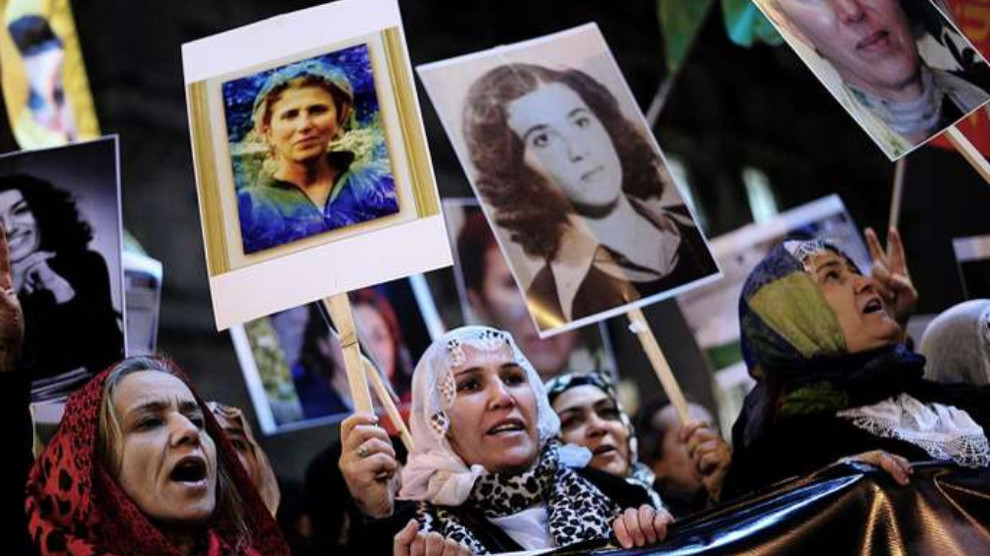Investigation into Turkish MIT’s role in Paris killings - UPDATED
The case on the triple murder of Sakine, Fidan and Leyla in Paris in 2013, is entering a new phase.
The case on the triple murder of Sakine, Fidan and Leyla in Paris in 2013, is entering a new phase.

PKK founding member Sakine Cansız, KNK representative Fidan Doğan and Kurdish Youth Movement member Leyla Şaylemez were murdered in the heart of French capital Paris in January 2013.
Reports say an investigation has been launched on the role the Turkish intelligence service MIT played in the massacre.
The families of the 3 murdered revolutionaries had appealed in March 2018 for the investigation to include the persons who ordered the massacre and their collaborators.
An anti-terror judge has been appointed to reopen the investigation. Lawyer Jean-Louis Malterre spoke to the ANF and confirmed that the investigation has been launched and the role of Turkish intelligence will be looked into.
“The judiciary has accepted that Turkish services played a role,” said Malterre and added that they haven’t received the indictment yet, and that they don’t know how long the investigation will take.
Malterre spoke about their appeal last year and said: “After the suspect died, we argued that he wasn’t acting on his own and that he had been given a weapon by the Turkish secret service.”
Malterre said the previous case had been restricted to just Omer Guney but that the role of the MIT had been clearly identified nonetheless.
A HISTORIC EVENT
Lawyer Antoine Comte spoke to AFP and said, “This is a historic event, it is the end of impunity for foreign ordered political murders in France.”
The massacre had been committed in the Lafayette 157, near the busiest train station in central Paris, the Gare du Nord, on January 9, 2013. PKK founder Sakine Cansiz (Sara), KNK Paris Representative Fidan Dogan (Rojbin) and Kurdish youth movement member Leyla Saylemez (Ronahi) had been executed with 3 bullets to their heads.
The only suspect on remand was Omer Guney, who lost his life under suspicious circumstances in late 2016, a few weeks before the hearings were scheduled to begin. The case against him was dismissed by default. But the families of the 3 women and the Kurds in general refused to accept such an end to the case, and started demanding that those who ordered the massacre be found and put on trial.
On March 12, 2018, charges were pressed again. In March, Lawyer Antoin Comte pointed to the Turkish state’s attack plans in Germany and belgium and posed a connection with the triple execution in France. Comte said, “We demand a judge who will investigate all these factors.”
Over six years after the massacre, the families and lawyers were waiting for developments in 2 cases. One of them was the demand for an investigation to uncover the network for the executions in Europe and the people who ordered the 3 women’s execution. The other was the demand that the “funds set aside for victims of terrorism” to be utilized for the 3 women.
Lawyer Jean-Louis Malterre had spoken to the ANF earlier this year and said they appealed for both cases in 2018, and that they are expecting developments in both in 2019.
Malterre spoke about the elements in the demand for a new investigation and, pointing to the assassination plans in Belgium and Germany, said: “These were organized by Erdogan’s special services.” Malterre added that many assassination plans were organized by the state in Europe and stated: “The method is similar to that of the Paris murders.”